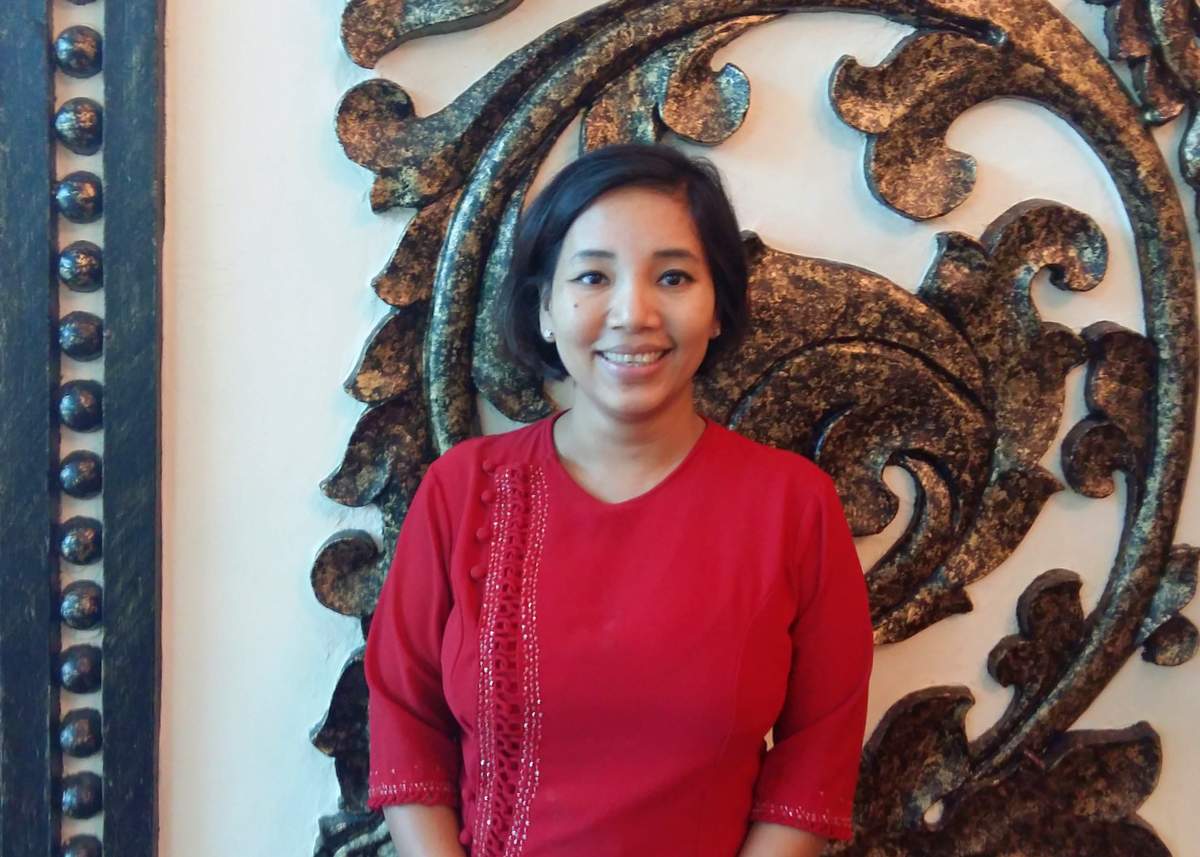Chin human rights activist Cheery Zahau speaks to DVB about what is needed to empower women in the workforce and what influenced her as a teenager to get involved in human rights advocacy.
Question: When did you become interested in politics and standing up for Chin people?
Answer: I was always very interested in politics, even from a young age. I had a curiosity to learn about my country and what was happening to our Chin people. I always had this intuition that I needed to know what’s going on as I grew up under heavy military rule and would see villagers doing forced labour under the military.
I had a strong feeling that the military dictatorship was not good for the people. My grandfather was a village leader and I’d watch the military come to our village and bargain with him as they collected food and taxes. I grew up with this view of the uniformed people.
The curriculum at school was also always about Burman history and culture — how superior their culture was and that our Chin people were backward people. The same thing for the Shan, because they grew opium, or the Karen and Kachin as they want to separate from the union. All these connotations about the ethnic people made me unhappy and uncomfortable all the time, so I challenged my teacher, “Why do we have to learn about Burman kings all the time?”
I knew from my family that we have a lot of strong Chin traditions and organised systems before the British came, but we never learned that in schools. It was the same in terms of literature: it was always about Buddhism, that it’s more authentic than my own Christian religion. Because I asked too many questions, my teachers used to say to me, “You are on the doorstep of prison,” because if I go to university I will end up in prison for organising student protests.
I was still planning to be a mining engineer but my score was over 330 out of 500, and in order to enroll it needed to be 350 for girls (for boys it is lower). So the systematic gender discrimination was already a big problem. For those reasons I left Burma and went to India, to Mizoram. It took me a week to get there. As soon as I got there, I joined the 88 Generation and the Chin women’s organisation, teaching politics and translating a lot of human rights documents and volunteering teaching in school. I still had no plan to be an activist. That was in 1999.
Q: What was the turning point for you in becoming a human rights activist?
A: In 2012 there was a big deportation of people from Burma in Mizoram State, India. They pushed Chin refugees from their homes and places of work from 28 July until November. So for those four months I was hiding. We dared not walk in the street. So with that horrible deportation I asked myself a lot of questions about why this happened. A lot of people can’t go back to Chin State as they have a problem with the military, they have no family or homes left, so there is no place for them to go. Some died on the way home and others chose to stay, so we helped them by setting up temporary refugee camps. I had one skirt and one pair of jeans and after those four months they were all torn up.
So if we couldn’t go back to Burma we could only contact Amnesty and the UN to issue a statement to India. So I had this voice inside my head that I needed to do something, to speak out. So that’s when I become a human rights campaigner.
Q: You recently did a TEDx talk. Tell me about the key messages you wanted to communicate.
A: There are three classes of women in Burma. The super high class can do whatever they want to do. It is important to get the upper class involved, but we are not representing their voice. And the middle class is thriving and getting more and more ambitious, and so I want to speak a little about that. But most importantly, I want to speak for the lower class.
My main concern is the role of women in society who did not go through formal education. I don’t want to call them uneducated as that would downgrade them, but a large amount of the population are women living in rural areas and we consider them uneducated “officially” or unemployed women with no income and we do not consider all the family contributions that they have made. So I am a big advocate for having a Women’s Ministry to boost their capacity, to increase economic activities for them and that will help them all the time.
Q: So what needs to happen to boost that capacity?
A: They need small capital. They need access to finance, access to roads and transportation, access to markets and communication services. Once they have this, they are very smart people — they have survived many difficulties in their lives — they are very capable.
There also needs to be a Ministry of Women, which needs to convince the private sector to invest in the capacity-building of women — not just focusing on women in factories in the city — and invest a lot more in entrepreneurship skills. The advancement of women also needs to involve the private sector and labour rights and coordination with other ministries, like the Ministry of Labour.
Women are not complaining or sitting idly and waiting. What I have learned from small women’s groups doing community microfinance is that they have terrific teamwork skills. Most are not even high school graduates, but they are excellent at keeping their accounting books.



